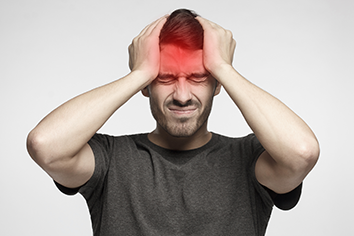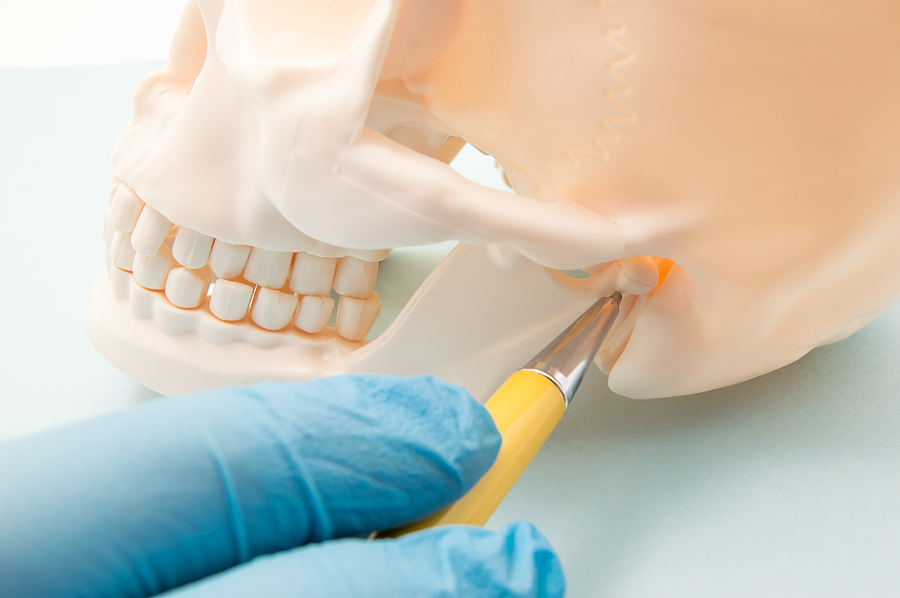TMJ disorder causing chronic headache? Here’s what you can do
Posted by JOSEPH J. LEE on Mar 8 2019, 10:23 AM

Ever had a lockjaw or severe pain in the jaws that lead to a headache as well? You’re not alone, as millions of Americans suffer from chronic headaches due to Temporomandibular Joint disorder, or TMD. Though it may seem like a simple issue that would just go away with time, you shouldn’t neglect it, because, the longer you wait for it to subside, it would just get worse.
How does TMD occur?
Temporomandibular Joints, or TMJs, are joints near our mouth that connect the lower jaw to the skull. They are responsible for the easy movement of the lower jaw and enable us to bite and chew food, and speak as well. When abnormal amounts of forces are applied on the TMJs, it could lead to TMD. Other causes of the disorder can be stress, subconscious clenching of the jaws during sleep (bruxism), excessive movement of the jaws (such as while chewing gum), etc.
Some of the symptoms of the disorder include pain in the jaws while speaking, biting and chewing food, lockjaw, pain and ringing sound in the ears, limited movement of the lower jaw, and chronic headache. The headaches are persistent and most often occur in the morning right after waking up.
How do you reduce the effects of TMD?
Since the most common cause of TMD is excessive pressure applied on the TMJs, you should make sure to keep the joints relaxed. Clenching of jaws, chewing gum, eating chewy or hard-to-bite foods, keeping the mouth wide open for too long, etc. should be avoided. Habits such as frequent snacking and holding the phone between the ear and the shoulder while speaking can stress out the TMJ. To relieve the joints of such stresses, you can massage them every day for a few minutes. Your dentist can recommend a few exercises for the jaws to help with the condition.
What to do if the problem persists?
Sometimes, if the condition is severe, the effects of TMD may not subside despite the remedial steps taken. In such cases, you would need professional attention from a dentist. The dentist would diagnose your condition and suggest a suitable treatment method to help with the condition.
To prevent the clenching of jaws, you may have to use a night time bruxism guard, which also prevents the wear of the teeth. In extreme cases, surgery may be in order to correct the problem with the joints and alleviate pain.
Share On

The Impact of Dental Implants on Jawbone Health & Facial Structure
When it comes to dental health, we often focus on our teeth and gums, but what about the …

Why Dental Implants Are Worth the Investment
Missing teeth can be more than just a cosmetic concern; they can impact your confidence, eating habits, and …

How Cosmetic Dentistry Can Improve More Than Just Your Smile
Your smile is one of the first things people notice about you. It’s a powerful tool for communication, …

Wisdom Teeth Removal: What to Expect and Why It’s Necessary
Wisdom teeth, or third molars, are the last to emerge, typically appearing in late adolescence or early adulthood. …

Effective Solutions for TMJ Disorders: Your Guide to Relief in Mountain View, CA
Temporomandibular joint (TMJ) disorders can significantly impact your quality of life, causing discomfort and limiting the ability to …